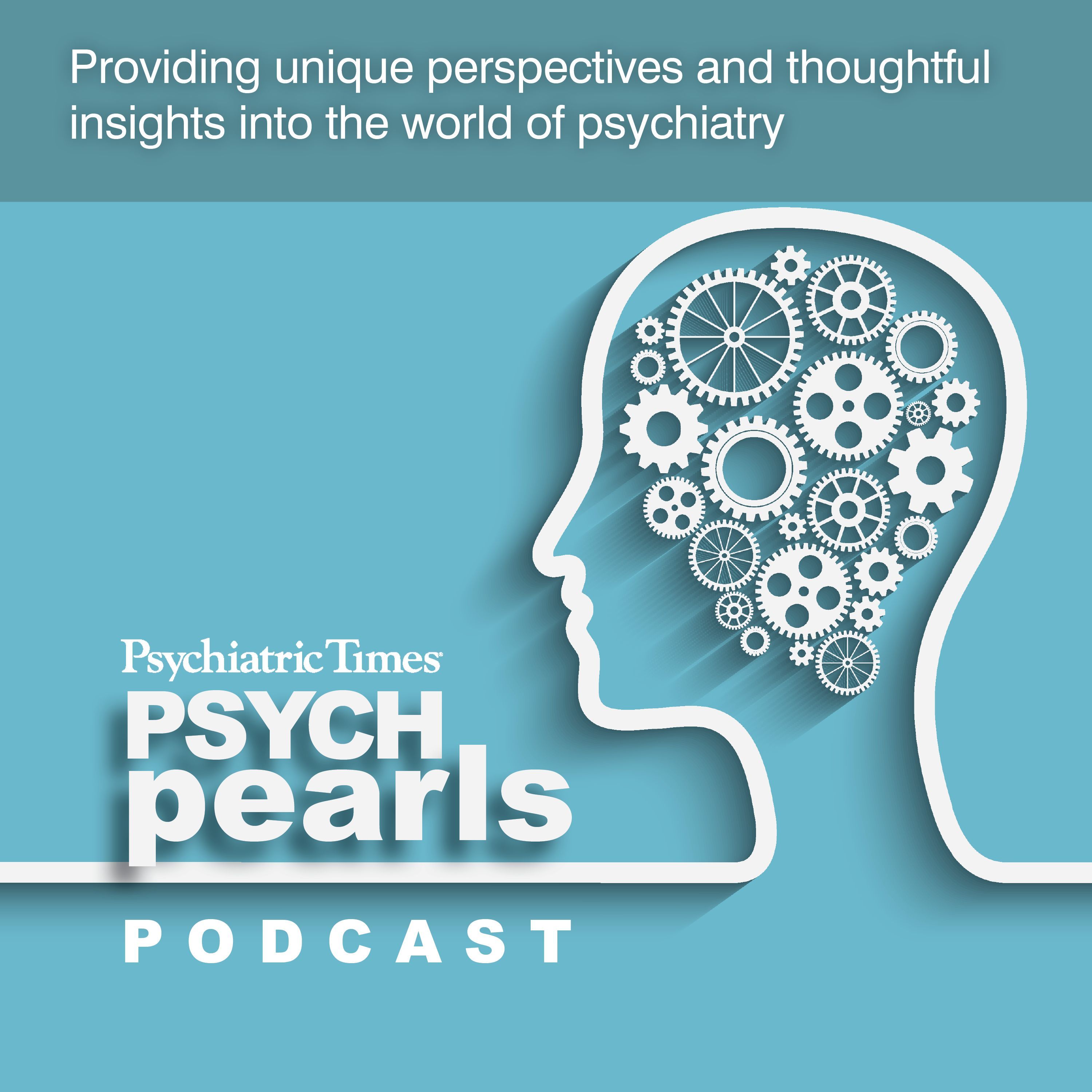Publication
Article
Psychiatric Times
Innovations in Clinical Research
Author(s):
The 2024 American Society of Clinical Psychopharmacology Annual Meeting brought together researchers and clinicians to engage in discussion, education, and dissemination of research findings and new methodologies.
BG DSgin/AdobeStock

CONFERENCE COVERAGE
As part of its goal to “enhance the development of cutting-edge research in the field of clinical psychopharmacology,” the 2024 American Society of Clinical Psychopharmacology Annual Meeting brought together researchers and clinicians to “to engage in discussion, education, and dissemination of research findings and new methodologies.” The conference took place in Miami, Florida, May 28 to 31, 2024. Complete coverage of this year’s meeting as well as previous meetings can be found at PsychiatricTimes.com.
Study Supports Efficacy, Tolerability of Brexpiprazole-Sertraline Combination Treatment for PTSD
What is the safety and efficacy of brexpiprazole and sertraline in the treatment of posttraumatic stress disorder (PTSD)? Nanco Hefting, MSc, chief scientific specialist for H. Lundbeck A/S, Valby, Denmark, and colleagues shed light on the combination therapy in a recent analysis of safety data from 3 clinical trials. They presented the data in a poster at the 2024 American Society of Clinical Psychopharmacology Annual Meeting.
Three trials aimed to evaluate the safety and efficacy of brexpiprazole combined with sertraline for the treatment of PTSD: Trial 0612 (phase 2; NCT03033069), Trial 0713 (phase 3; NCT04124614), and Trial 0724 (phase 3; NCT04174170).1 In all the trials, participants included male and female outpatients aged 18 to 65 years who had received a DSM-5 diagnosis of PTSD and had experienced symptoms for at least 6 months. Each trial involved an 11-week randomized, double-blind phase.1
Trial 061 randomly assigned patients into 4 groups: brexpiprazole (1-3 mg/day) with sertraline (100-200 mg/day), brexpiprazole with placebo, sertraline with placebo, and placebo. Trial 071 compared brexpiprazole (2-3 mg/day) with sertraline (150 mg/day) against sertraline with placebo. Finally, Trial 072 tested 3 groups: brexpiprazole (2 mg/day) with sertraline (150 mg/day), brexpiprazole (3 mg/day) with sertraline, and sertraline with placebo.1
The primary end point for these studies was the change in the Clinician-Administered PTSD Scale for DSM-5 total score from baseline to week 10. Safety assessments included treatment-emergent adverse events (TEAEs), changes in body weight, incidence of suicidality, and deaths.1
Results showed that the incidence of TEAEs varied across the trials. In Trial 061 (n = 316), TEAEs were reported in 72.5% of the brexpiprazole plus sertraline group, 70.7% in the brexpiprazole plus placebo group, 69.6% in the sertraline plus placebo group, and 78.0% in the placebo group. In Trial 071 (n = 401), 60.0% in the brexpiprazole plus sertraline group experienced TEAEs vs 58.2% in the sertraline plus placebo group. In Trial 072 (n = 537), TEAEs were 51.4% in the brexpiprazole 2 mg/day plus sertraline group, 48.3% in the brexpiprazole 3 mg/day plus sertraline group, and 51.2% in the sertraline plus placebo group.1
When data from the 3 studies were pooled, the overall incidence of TEAEs was similar between the brexpiprazole plus sertraline group (55.5%) and the sertraline plus placebo group (56.2%). Common TEAEs included nausea, headache, weight gain, and diarrhea. Notably, weight gain was more common in the brexpiprazole plus sertraline group (5.2%) compared with the sertraline plus placebo group (1.3%).1
The mean change in body weight from baseline to week 12 was an increase of 1.5 kg for the brexpiprazole plus sertraline group, whereas the sertraline plus placebo group demonstrated a slight decrease of 0.2 kg. The incidence of suicidality-related TEAEs was lower in the brexpiprazole plus sertraline group (0.6%) compared with the sertraline plus placebo group (1.1%). Three deaths occurred across the studies, each in different treatment arms, but none were deemed related to the study treatments.1
The investigators concluded that the combination of brexpiprazole and sertraline appears to be safe and well tolerated in patients with PTSD, with no new safety concerns emerging from the trials. They added that this combination therapy holds potential as a new treatment option for PTSD, subject to confirmation of its efficacy.1
References
1. Behl S, Lee D, Zeng H, et al. Safety and tolerability of brexpiprazole in combination with sertraline for patients with post-traumatic stress disorder: summary of data from phase 2 and phase 3 randomized trials. Presented at: 2024 American Society of Clinical Psychopharmacology Annual Meeting; May 28-31, 2024; Miami, FL.
2. A study of flexible dose brexpiprazole as monotherapy or combination therapy in the treatment of adults with post-traumatic stress disorder (PTSD). ClinicalTrials.gov. Updated December 8, 2021. Accessed May 29, 2024. https://clinicaltrials.gov/study/NCT03033069
3. Brexpiprazole as combination therapy with sertraline in treatment of adults with PTSD. ClinicalTrials.gov. Updated September 1, 2023. Accessed May 29, 2024. https://classic.clinicaltrials.gov/ct2/show/NCT04124614
4. Brexpiprazole as combination therapy with sertraline in the treatment of adults with post-traumatic stress disorder. ClinicalTrials.gov. Updated September 1, 2023. Accessed May 29,2024. https://clinicaltrials.gov/study/NCT04174170
Post Hoc Analysis Results of KarXT for Schizophrenia
A recent post hoc analysis of 3 phase 2 and 3 clinical trials explored the safety and efficacy of KarXT, an investigational combination of xanomeline and trospium chloride, for schizophrenia treatment in adults.1 Nichole Neugebauer, PhD, of KarXT developer Karuna Therapeutics, presented the data in a poster.
The presentation incorporated data from 3 randomized, double-blind, placebo-controlled studies (NCT03697252,2 NCT04659161,3 and NCT047381234). Investigators assessed the treatment’s efficacy using the Positive and Negative Syndrome Scale (PANSS) and the Clinical Global Impressions-Severity (CGI-S) score. They evaluated the tolerability of the treatment by monitoring adverse effects, discontinuation rates due to adverse effects, and changes in metabolic and cardiac parameters.1
The results showed KarXT effectively reduced schizophrenia symptoms with a favorable adverse effect profile. KarXT showed robust efficacy, with a number needed to treat (NNT) as low as 5 for a reduction of 20% or greater in PANSS scores. Other notable efficacy outcomes included NNT values of 5 for a reduction of 30% or greater in PANSS scores, 8 for a reduction of 40% or greater in PANSS scores, and 8 for achieving a CGI-S score of less than or equal to 3.1
Gastrointestinal adverse effects, such as nausea (NNH = 7) and vomiting (NNH = 9), were evident. Discontinuation due to these AEs was relatively low (NNH = 49). KarXT did not significantly affect weight gain or cause somnolence, unlike many existing antipsychotic medications.1
The likelihood of being helped or harmed (LHH) was greater than 1 for all efficacy outcomes compared with the harms, indicating that patients are more likely to experience therapeutic benefits than adverse effects. For instance, the LHH for treatment response vs discontinuation due to adverse effects was 21.8 compared with 9.8 for response vs discontinuation due to gastrointestinal issues.1
Indirect comparisons with other first-line antipsychotics suggest that KarXT has a competitive edge, particularly in its minimal impact on weight gain and lower incidence of sedation. These attributes position KarXT as a potentially more tolerable option for patients who are sensitive to these common adverse effects.1
The investigators concluded that KarXT shows significant promise as a treatment for schizophrenia, offering efficacy comparable to or exceeding that of existing first-line medications while exhibiting a favorable tolerability profile. Although head-to-head trials with other antipsychotics are needed, current evidence suggests that KarXT could provide a valuable alternative for managing schizophrenia. As research progresses, the investigators added, further studies will be essential to confirm these findings and establish long-term safety and efficacy in broader patient populations.1
The US Food and Drug Administration is set to announce its decision on the approval of KarXT on September 26, 2024.5
References
1. Kozauer SG, Durgam S, Earley WR, et al. KarXT (xanomeline and trospium) for the treatment of schizophrenia: number needed to treat, number needed to harm, and likelihood to be helped or harmed. Presented at: 2024 American Society of Clinical Psychopharmacology Annual Meeting; May 28-31, 2024; Miami, FL.
2. A study to assess safety and efficacy of KarXT in adult patients with schizophrenia (EMERGENT-1). ClinicalTrials.gov. Updated October 26, 2020. Accessed May 30, 2024. https://classic.clinicaltrials.gov/ct2/show/NCT03697252
3. A study to assess efficacy and safety of KarXT in acutely psychotic hospitalized adult patients with schizophrenia (EMERGENT-2). ClinicalTrials.gov. Updated December 12, 2023. Accessed May 30, 2024. https://classic.clinicaltrials.gov/ct2/show/NCT04659161
4. A study to assess efficacy and safety of KarXT in acutely psychotic hospitalized adult patients with schizophrenia (EMERGENT-3). ClinicalTrials.gov. Updated October 31, 2023. Accessed May 30, 2024. https://clinicaltrials.gov/study/NCT04738123
5. Kuntz L. New data demonstrates KarXT’s positive long-term metabolic profile. Psychiatric Times. April 12, 2024. Accessed May 30, 2024. https://www.psychiatrictimes.com/view/new-data-demonstrates-karxt-positive-long-term-metabolic-profile
ALTO-101 Shows Positive Phase 1 Results
How does ALTO-101 affect cognition in central nervous system (CNS) disorders such as schizophrenia? Adam Savitz, MD, PhD, chief medical officer at Alto Neuroscience, and colleagues shared their findings from a recent phase 1 study examining the procognitive pharmacodynamic effects of the treatment on cognitive impairment in CNS disorders in a poster presentation at the 2024 American Society of Clinical Psychopharmacology (ASCP) Annual Meeting.
According to the investigators, enhancing cyclic adenosine monophosphate (cAMP)/protein kinase A signaling in the brain has shown potential in previous animal models and early clinical trials exploring treatments for cognitive impairment in conditions such as schizophrenia. ALTO-101, a selective inhibitor of phosphodiesterase 4, increases cAMP levels in critical brain regions, suggesting that it could be a novel treatment for cognitive deficits.1 Since research shows that an estimated 70% to 80% of individuals with chronic schizophrenia experience cognitive impairment,2 the investigators decided to explore the treatment’s efficacy in mitigating symptoms of cognitive decline.
To this end, the investigators launched a randomized, double-blind, placebo-controlled phase 1 trial that enrolled 40 healthy adults aged 40 to 64 years. Participants received a single oral dose of placebo, 0.5-mg ALTO-101, and 1.5-mg ALTO-101 in a 3-way crossover design, with a 7-day washout period between doses. Neurocognitive tests and electroencephalography (EEG) were used to assess the drug’s acute effects.1
The results indicated significant differences between the ALTO-101 and placebo conditions. The investigators observed increased amplitude of the mismatch negativity potential (0.5 mg: d = 0.38, P = .07; 1.5 mg: d = 0.53, P = .02); enhanced γ-band phase locking response to auditory stimuli (0.5 mg: d = 0.35, P = .08; 1.5 mg: d = 0.68, P = .003); decreased relative theta power in resting-state EEG (0.5 mg: d = 0.51, P = .02; 1.5 mg: d = 0.88, P = .0003); and improved processing speed (0.5 mg: d = 0.32, P = .16; 1.5 mg: d = 0.63, P = .006).1
According to the investigators, this study is notable for its robust design, involving 40 participants in a crossover format, which provides more reliable data compared with typical phase 1 trials with smaller sample sizes. They concluded that the positive results highlight the drug’s potential and support its continued development as a therapeutic option for cognitive impairment in CNS disorders.1
“These findings demonstrate strong pharmacodynamic effects of ALTO-101 in driving key brain processes important for cognition as measured by EEG, along with behavioral evidence of cognitive improvement,” the investigators stated.1 “Since these measures index schizophrenia-related deficits in cognition and cognitive processing, these data support further development of ALTO-101 for the treatment of cognitive impairment associated with schizophrenia.”
References
1. Ravidran A, Sundar G, Goncalves S, et al. Pro-cognitive pharmacodynamic effects of ALTO-101: results from brain and behavioral outcomes in a randomized, double-blind phase 1 study. Presented at: 2024 American Society of Clinical Psychopharmacology Annual Meeting; May 28-31, 2024; Miami Beach, FL.
2. Stainton A, Chisholm K, Griffiths SL, et al; PRONIA Consortium. Prevalence of cognitive impairments and strengths in the early course of psychosis and depression. Psychol Med. 2023;53(13):5945-5957.

Newsletter
Receive trusted psychiatric news, expert analysis, and clinical insights — subscribe today to support your practice and your patients.






